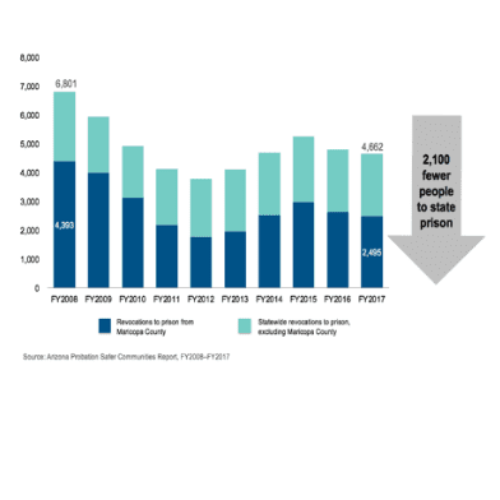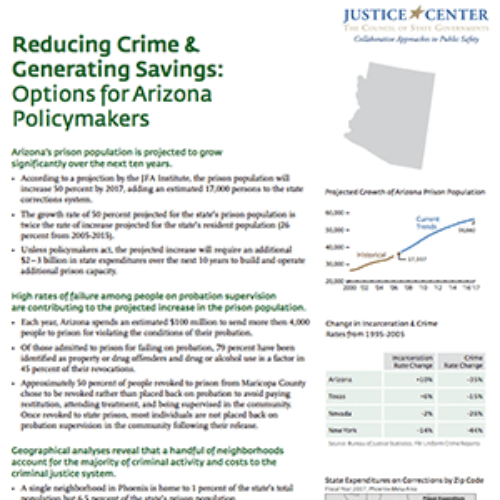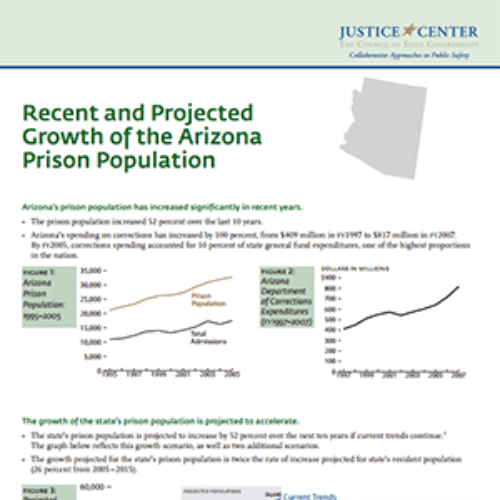Justice Reinvestment in Arizona
The Problem
In 2007, Arizona’s prison population was projected to increase 50 percent within 10 years, twice the projected growth rate of the resident population. Probation revocations, which were often a result of drug and alcohol use, represented a third of prison admissions, costing the state an estimated $100 million annually. Moreover, geographical analyses revealed that a handful of neighborhoods accounted for the majority of criminal activity and costs to the criminal justice system.
How Justice Reinvestment Helped
From 2006 to 2008, the CSG Justice Center worked with Arizona state leaders to analyze criminal justice data, interview stakeholders from across the criminal justice system, and develop data-driven policy options designed to reduce corrections spending and increase public safety. Signed into law in 2008, the resulting legislation, the Safe Communities Act
- Establishes performance-incentive funding for county-run probation departments to reduce crime and violations rather than revoke people on probation to state custody; and
- Develops an earned-time policy to incentivize success on probation and focus supervision on people who are at high risk of reoffending.
Implementation and Impacts
According to the Impact of Arizona’s Probation Reforms, an issue brief by The Pew Charitable Trusts, between 2008 and 2011, the number of people revoked to prison for probation violations fell by 28 percent, while probation revocations to jail declined by 39 percent. Felony convictions of people on probation decreased by 31 percent over the same period.
It is estimated that the decline in revocations to prison alone saved the state $36 million that would have been necessary to house the additional people. However, due to budget pressures, the state legislature did not follow through on providing the performance-based reinvestment funding to county probation departments as required and ultimately repealed the law requiring the state to do so.













